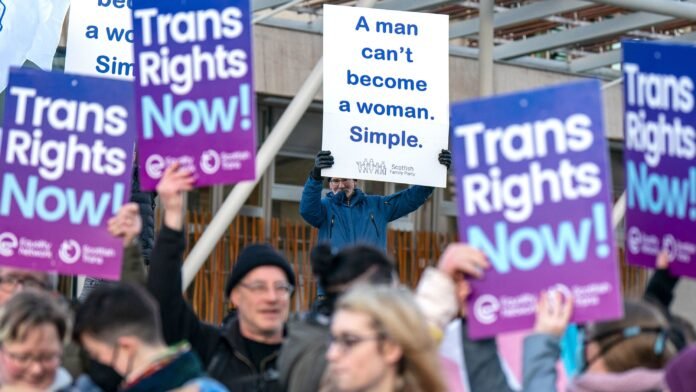In a progressive move towards LGBTQ+ rights, a UK lawmaker has proposed posthumous gender recognition for transgender individuals. This proposal aims to honor the gender identity of deceased transgender individuals, providing them the dignity they deserve even after death.
The lawmaker, whose name has not been disclosed, believes that recognizing a person’s gender identity posthumously is a matter of respect and human rights. This initiative seeks to acknowledge the transgender community’s struggle for recognition and acceptance, even beyond their lifetime.
Supporters of the proposal argue that posthumous gender recognition would rectify the historical injustice faced by transgender individuals. By officially recognizing their gender identity after death, it affirms their existence and validates their lived experiences.
The call for posthumous gender recognition comes amidst ongoing debates and discussions about transgender rights and equality. Advocates emphasize the importance of inclusive policies and legislation that protect and affirm the rights of transgender individuals in all aspects of life.
The proposed legislation has sparked both praise and criticism from various quarters. While many applaud it as a step towards greater inclusivity and respect for transgender individuals, others raise concerns about the practicalities and implications of implementing such a policy.
Critics argue that posthumous gender recognition may face logistical challenges, including issues related to documentation and legal procedures. Some also question the necessity of this initiative, suggesting that there are more pressing issues affecting the transgender community that require immediate attention.
Despite the debate surrounding the proposal, its introduction signifies a growing awareness and recognition of transgender rights in society. It reflects a broader shift towards greater acceptance and understanding of gender diversity and the need to address the discrimination and marginalization faced by transgender individuals.
The proposal is expected to ignite further discussions and deliberations within the UK parliament and beyond. As policymakers, activists, and the public engage in dialogue about transgender rights, the hope is that initiatives like posthumous gender recognition will contribute to creating a more inclusive and equitable society for all individuals, regardless of their gender identity.
Amidst the ongoing discourse, it’s essential to acknowledge the challenges faced by the transgender community, both in life and in death. Transgender individuals often encounter discrimination, violence, and lack of access to essential services throughout their lives. Posthumous gender recognition, therefore, represents a symbolic gesture of respect and affirmation of their identity, addressing a longstanding issue of erasure and invisibility.
Furthermore, the proposal for posthumous gender recognition underscores the broader conversation about the importance of recognizing and respecting gender diversity. It highlights the need for society to move beyond binary understandings of gender and embrace the fluidity and complexity of gender identity.
Implementing posthumous gender recognition would require careful consideration of legal and administrative procedures to ensure that it is carried out effectively and ethically. It would involve collaboration between government agencies, advocacy groups, and community organizations to establish clear guidelines and protocols for the process.
Ultimately, the discussion surrounding posthumous gender recognition reflects society’s evolving understanding of gender and the ongoing efforts to promote equality and dignity for all individuals, regardless of their gender identity. It serves as a reminder of the ongoing work needed to create a more inclusive and affirming world for transgender people, both in life and beyond.
The proposal comes amid ongoing debates over transgender rights and recognition in the UK. Advocates argue that posthumous gender recognition would affirm the gender identity of transgender individuals, even after their passing, and provide closure for their loved ones. However, opponents express concerns about the legal and practical implications of such recognition, including issues related to documentation, inheritance, and medical records.
In response to the proposal, various advocacy groups and transgender rights organizations have voiced their support, emphasizing the importance of acknowledging and respecting individuals’ gender identity throughout their lives and beyond. They highlight the significance of legal recognition in affirming the dignity and rights of transgender individuals, both in life and in death.

